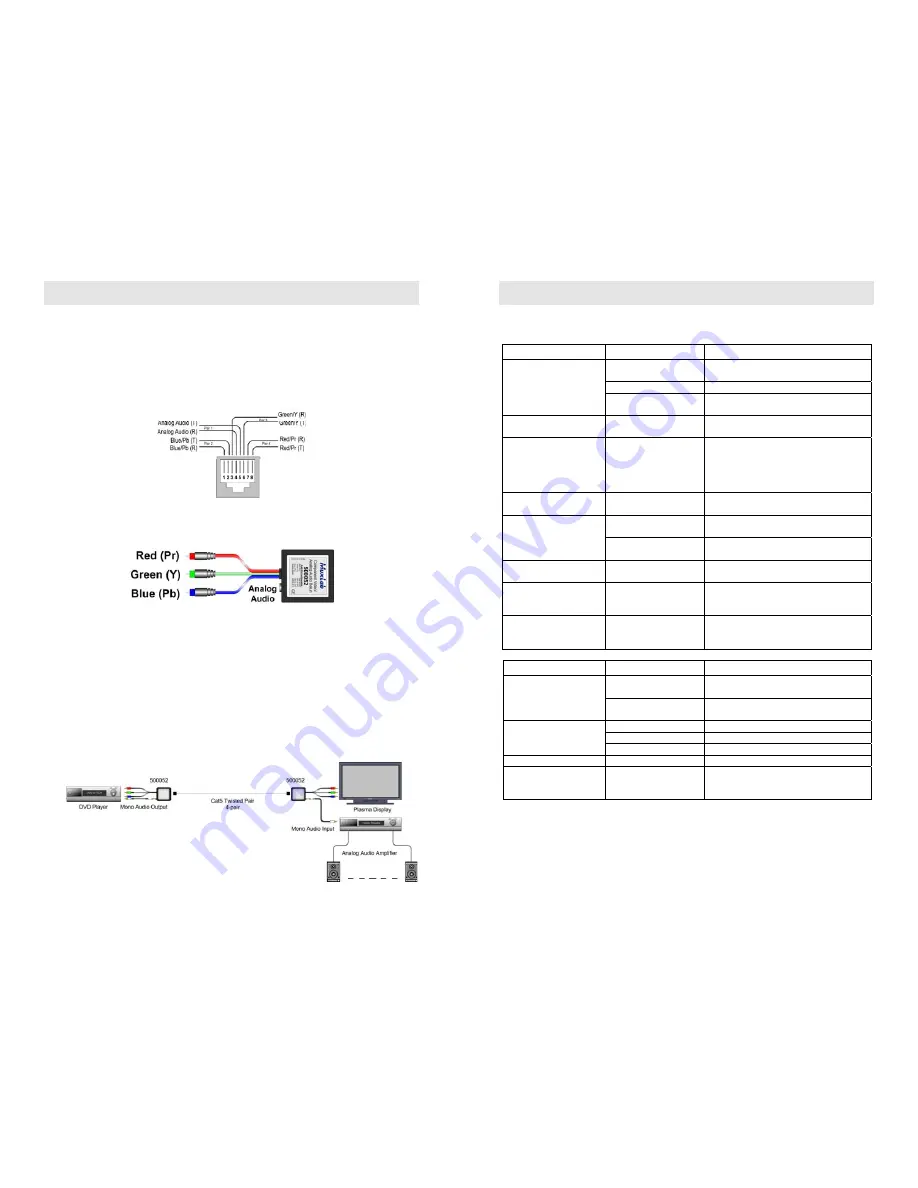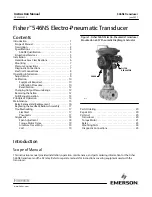
© MuxLab Inc.
Installation
One (1) pair of baluns is needed to complete one component (YPbPr/RGB) connection
via Cat 5E/6 twisted pair. To install the baluns, perform the following steps:
1.
Identify the pin configuration of the baluns. Three (3) twisted pairs are required for
video and one (1) twisted pair is required for optional analog audio. The pin
configuration follows the EIA/TIA 568A/B standard. The Component
Video/Analog Audio Balun is reverse polarity sensitive. Please ensure that wiring
is straight-through (Ring to Ring, Tip to Tip).
2.
Plug one (1) balun into the component video coaxial cable output of the video
source according to the color code of the RCA cable leads.
3.
Plug the second balun into the component video coaxial cable input of the video
screen or receiver at the remote end.
4.
Complete the connection between the two baluns, using standard Cat 5E/6 twisted
pair cable and connecting hardware, terminated on RJ45 plugs at both ends. Ensure
that there are no split pairs or taps.
5.
If analog audio is to be connected (optional), connect an RCA lead between the
balun and the analog audio equipment at both ends.
6.
Power-on the component video equipment. Check the image quality and refer to
the troubleshooting table below if the image quality is unsatisfactory. The
following diagram shows a typical installation.
Troubleshooting
The following tables describe some of the symptoms, probable causes and possible
solutions in respect to the installation of the Component Video/Analog Audio Balun:
Video Symptom
Probable Cause
Possible Solutions
No continuity in video
link
Verify cable continuity between pairs of
baluns.
Power off
Check power supplies of video equipment.
No video
Improper connection
and/or swapped pairs
Check that baluns are connected to correct
video inputs and outputs.
Unusual colors
Reversed polarity
Check wiring and ensure straight-through
polarity.
Background pattern
EMI interference
Identify possible radiating frequency
sources (
i.e.
, wireless LANs, switching
power supplies). Try to isolate them from
the video connection. Use shielded twisted
pair grounded at both ends.
Smearing
Exceeded distance
Verify cable grade. Use higher grade cable
if necessary.
Exceeded distance
Verify cable grade. Use higher grade cable
if necessary. Increase contrast on monitor.
Weak contrast
Unusual link attenuation
Verify cable distance using ohmmeter or
cable tester.
Image not stable
Defective link or
equipment
Verify video equipment interface integrity.
Horizontal bars moving
slowly
Substantial crosstalk
between multiple video
sources
Consecutively turn off other video sources
to determine which video source is the
cause of interference.
Snowy picture
Distance is near limit
Verify cable grade. Use higher grade cable
if necessary. Reduce color intensity at
monitor.
Audio Symptom
Probable Cause
Possible Solutions
EMI interference
Check that wiring is not too close to
transformers and ballasts.
Poor audio quality
Split pair
Ensure that the UTP pairs are not split and
that each pair of wires is twisted.
No power
Check your audio system for power.
Open circuit
Check wiring to ensure continuity.
No audio
Defective balun
Change baluns for another pair.
Audio phase cancellation
Reversed wires
Check for straight-through wiring.
Audio weak
Distance specifications
exceeded
Check DC loop resistance and verify if
distance spec is exceeded. Reduce cable
length or eliminate high-loss components.
If you still cannot diagnose the problem, please call MuxLab Customer Technical
Support at 877-689-5228 (toll-free in North America) or (+1) 514-905-0588
(International).




















